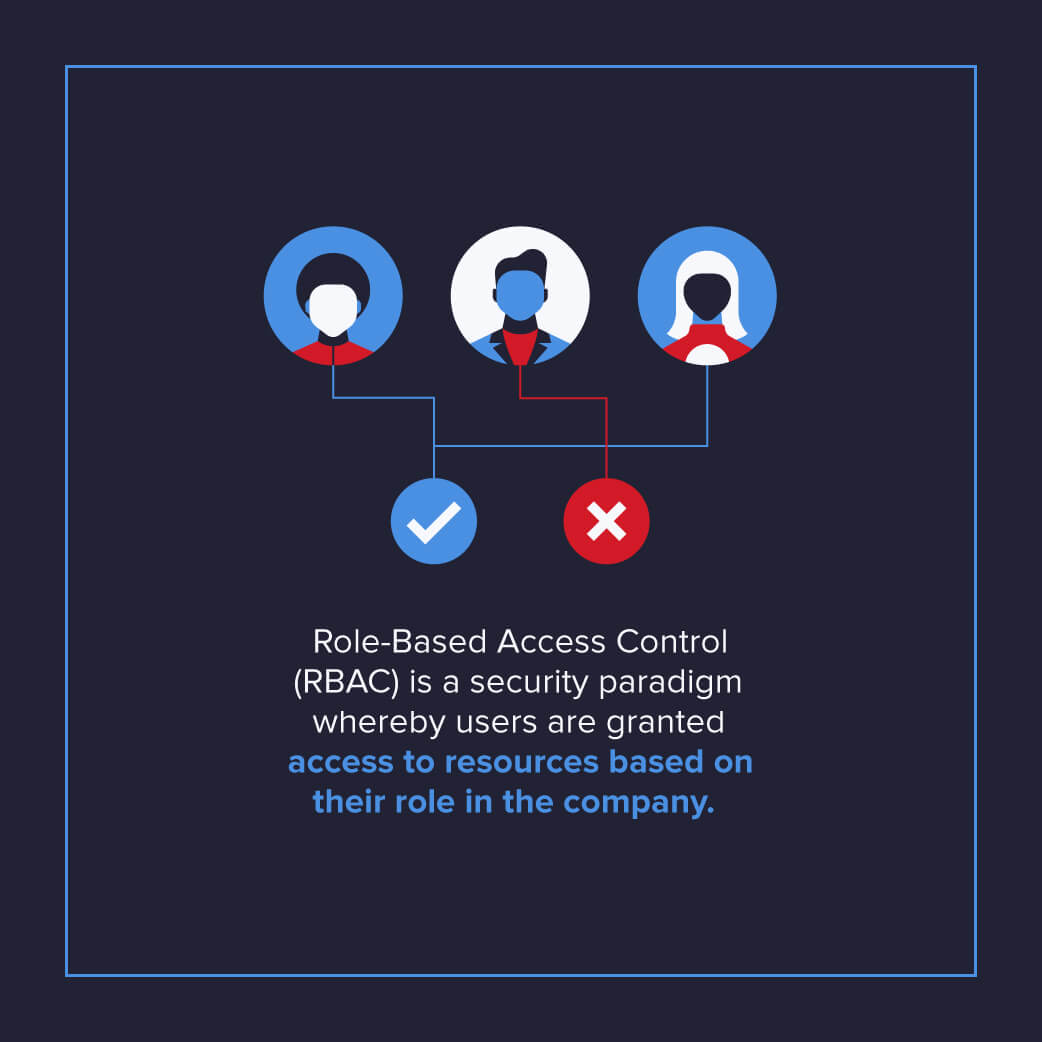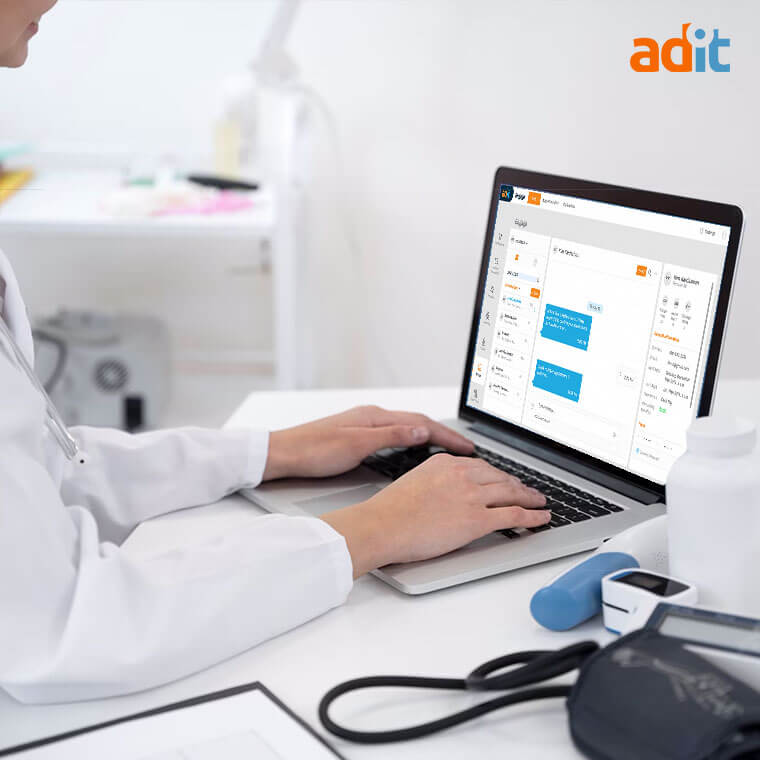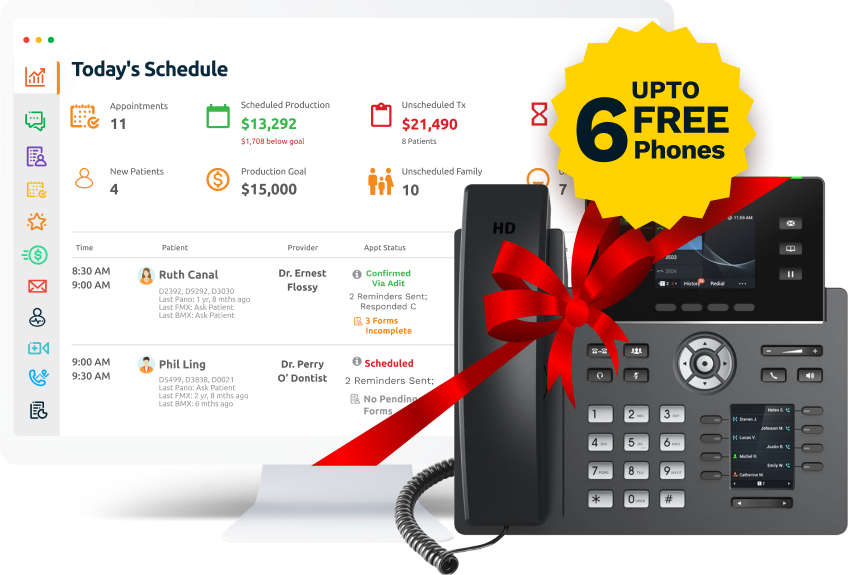Ends in
ends in 158 Days

ends in 158 Days

ends 11 July
Cybersecurity Awareness Month: Safeguarding Your Dental Practice

Cybersecurity Awareness Month is a time for focusing on the evolving threat landscape and adopting advanced measures to ensure the security and integrity of your dental practice. Modern dentistry frequently depends on modern solutions for a variety of tasks, but none so important as ensuring the security of patient records. As cyber threats increasingly target dental practices, the significance of safeguarding patient data has never been higher.
Stay ahead of would-be hackers and identity thieves with our analysis of the current threat landscape dental professionals are facing and learn some valuable best practices that can heighten your clinic's data security.
Understanding the Threat Landscape

Cyber threats that include notorious ransomware attacks, large-scale data breaches, and sophisticated dental phishing scams, have intensified in complexity, affecting every business sector worldwide, including dental practices.
Large-scale data breaches can lead to significant financial losses, legal repercussions, and reputational damage for dental practices. Stolen patient data, including personal and financial information, can be misused, leading to identity theft, financial fraud, and even medical fraud. Beyond the immediate financial implications, breaches erode patient trust, a cornerstone of any healthcare provider-patient relationship. Patients may lose confidence in a practice’s ability to safeguard their sensitive information, potentially leading to patient attrition and reputational damage in the community.
Below are just a few of the many dental data breach events that have occurred over the past decade:
WannaCry Attack
The WannaCry ransomware attack in 2017 targeted organizations globally, impacting companies such as the UK's National Health Service (NHS), FedEx, and Telefonica. Dental practices, relying heavily on digital systems, experienced disruptions in appointments and patient data access, emphasizing the vulnerabilities within healthcare IT systems1.
Dominion National Data Breach
In 2019, a leading dental insurance provider, Dominion National, fell victim to a data breach, exposing sensitive patient data, including names, addresses, and Social Security numbers, affecting nearly 95,000 patients. This breach raised concerns about data security protocols within dental insurance entities, highlighting the need for stringent cybersecurity measures within the dental industry.
Rise in Phishing Scams
Phishing scams, like the highly sophisticated attack on SmileDirectClub in 2019, have targeted dental professionals with tailored deceptive emails. SmileDirectClub, a teledentistry company, faced a significant breach when an employee fell victim to a phishing scam, compromising customer data. Such incidents emphasize the importance of dental practices implementing rigorous staff training and cybersecurity measures to counter these evolving threats.
Recognizing the complexities of these incidents is paramount for dental practices. These examples underline the necessity for proactive cybersecurity measures. Dental professionals must remain vigilant, continuously educate staff, and invest in robust cybersecurity infrastructure to safeguard patient data, maintain practice integrity, and uphold the trust patients place in their care.
How Mountainview Dental ditched RecallMax & Weave and boosted revenue 10% in 6 months with Adit What could your dental practice achieve in the first 6 months with Adit? Mountainview Dental Centre switched from RecallMax and Weave to Adit’s...
Schedule a DemoWhy Your Dental Practice's Data Security Strategy is Mission Critical

In the rapidly evolving digital landscape, your dental practice's lifeblood is the sensitive data it holds. Entrusted not only with your patients' smiles but also with their private information, your practice is the guardian of their trust. In an era where cyber threats loom large, safeguarding this data has never been more vital. Welcome to the imperative realm of dental data security, where ensuring the confidentiality of your patient's information isn't just a choice—it's a mission.
Your practice's data security strategy isn't merely a protective measure; it's a mission-critical necessity. Unsure how your patient data can impact your entire dental operation? Below are just a few of the many reasons why securing your dental practice's data is paramount for safeguarding your patients, preserving your reputation, and ensuring the future of your practice.
Rising Threats: Dental practices face an escalating threat of cyberattacks, with the healthcare sector being the most targeted industry. According to Duke University, 80% of U.S. businesses experienced a cyberattack, emphasizing the vulnerability of dental practices to data breaches and ransomware attacks.
Regulatory Impact: Non-compliance with data protection regulations can lead to severe penalties. For instance, the Health Insurance Portability and Accountability Act (HIPAA) violations can result in fines ranging from $100 to $50,000 per violation, depending on the level of negligence, with a maximum annual penalty of $1.5 million.
Need for Staff Training: Human error is a leading cause of data breaches. Dental practices need to invest in comprehensive staff training programs. Research indicates that over 70% of data breaches in the healthcare sector are caused by unintentional errors, emphasizing the critical role of ongoing education6.
Impact of Breaches: The average cost of a data breach in the healthcare industry, which includes dental practices, reached $10.93 million in 2023 so far. This financial burden highlights the potential consequences of insufficient data security measures, affecting both finances and reputation.
Patient Records at Risk: Dental practices are lucrative targets due to the valuable patient data they store. Research shows that the average cost of a stolen healthcare record is $250, making patient data a prime target for cybercriminals looking to profit from identity theft and fraudulent activities3.
These fast facts underline the urgency for dental practices to prioritize data security. Implementing robust cybersecurity protocols, regular staff training, and advanced dental practice management software are essential steps to safeguard patient data, maintain regulatory compliance, and uphold the trust of the patient community.
Data Security Essentials For Every Dental Practice

In the contemporary landscape of dental care, data security is not merely a technical necessity; it's a regulatory requirement. Patients entrust dental practices with their most sensitive information, from medical records to personal details. As the custodians of this invaluable data, dental professionals face the dual challenge of delivering exceptional care while complying with the highest standards of data security.
The following tips will help your clinic address the fundamental principles that form the bedrock of secure data management. From encryption protocols to staff training, each insight presented here is a step toward a future where patients feel not just cared for but also assured that their data is safeguarded with the utmost diligence.
Ensuring Compliance with Regulations
Regulatory compliance, notably with laws like HIPAA, is paramount in the healthcare industry. PMS solutions are designed with a keen understanding of these regulations so dental practices can ensure they adhere to all legal requirements related to data security and patient privacy more easily using these systems. This not only protects the practice from legal repercussions but also instills confidence in patients, knowing their data is handled with the utmost care.
Preventing Phishing and Social Engineering Attacks
Phishing attacks, where cybercriminals impersonate legitimate entities to extract sensitive information, remain a significant threat. Practice management platforms often incorporate intelligent email filtering systems that can identify and block phishing attempts before they reach your inbox. These systems analyze email content and sender behavior, safeguarding your practice from falling victim to such attacks.
Mitigating Risks with Regular Backups
Data loss can be catastrophic for any dental practice. Advanced dental practice management software provides automated, encrypted backups of patient records. These backups are stored securely, ensuring that in the event of a cyber attack, the practice can swiftly recover its operations. Regularly updated backups minimize downtime, allowing the practice to resume its services quickly and efficiently. By having a robust backup strategy in place, dental practices can mitigate the risks associated with data loss due to cyber threats.
Educating Staff on Cyber Hygiene

Human error remains a significant cybersecurity risk. Comprehensive training modules and resources to educate staff about cybersecurity best practices are a must. These modules cover a wide range of topics, from creating strong, unique passwords to recognizing social engineering attempts. By fostering a culture of cyber hygiene within the practice, employees become proactive in safeguarding sensitive information. Educated staff members are the first line of defense against cyber threats, making ongoing training an indispensable aspect of any dental practice's cybersecurity strategy.
Implementing Multi-Factor Authentication (MFA)
Multi-factor authentication (MFA) adds an extra layer of security beyond passwords. Many practice management software solutions often integrate MFA, requiring multiple forms of verification before granting access. By enabling this level of security access, dental practices create a robust barrier against unauthorized access, significantly enhancing overall data security.
Regular Security Audits and Vulnerability Assessments
Periodic security audits and vulnerability assessments are proactive measures to identify potential weak points in data security protocols. Many independent agencies are providing services that conduct thorough assessments to pinpoint vulnerabilities. By addressing these vulnerabilities promptly, dental practices strengthen their defenses, ensuring they remain resilient against evolving cyber threats.
Implementing Secure File-Sharing Protocols
Sharing files securely within the practice is vital. Your practice management software should offer encrypted file-sharing options, ensuring all patient data shared among staff remains confidential. These protocols prevent data leaks and unauthorized access, maintaining the integrity of patient information within the practice.
Data Encryption for Mobile Devices
In a mobile-centric world, dental professionals often access patient data on various devices. Modern PMS platforms extend their security protocols to mobile applications, ensuring that data on smartphones and tablets is encrypted. This encryption guarantees that even if a mobile device is lost or stolen, patient health information (PHI) remains inaccessible to unauthorized users, safeguarding patient privacy effectively.
Collaboration with Cybersecurity Experts
Establishing partnerships with cybersecurity experts or firms specializing in healthcare data security can provide invaluable insights. These experts can conduct in-depth assessments, offer tailored training programs, and provide real-time support during security incidents. Collaborative efforts with cybersecurity professionals empower dental practices with the latest knowledge and strategies, creating a formidable defense against cyber threats.
Incorporating these best practices alongside existing data security measures ensures that dental practices remain at the forefront of safeguarding patient information. This holistic approach to cybersecurity ensures your dental team fulfills its regulatory obligations and nurtures a culture of trust and reliability among its patient community.
Securing Patient and Practice Data: The Role of Modern Dental Practice Management Software

In the face of rising threats in online market spaces, dental practice management software not only streamlines operations but fortifies the very foundation of your practice. Whether you're looking to integrate additional features into your existing EHR system or completely modernize how you manage your dental operations, there are several key advantages these tech-forward software platforms bring to your practice:
Comprehensive Encryption: Modern dental practice management software employs advanced encryption protocols, safeguarding patient records, financial data, and communications. Through robust encryption algorithms, sensitive information is shielded from prying eyes, ensuring confidentiality and compliance with data protection regulations.
Access Control and Permissions: These software solutions offer granular control over who can access specific data within the practice. Role-based access ensures that only authorized personnel can view or modify patient records, adding an extra layer of security against internal threats.
Regular Software Updates: Dental practice management software providers are vigilant in updating their systems to counter emerging cyber threats. By regularly updating the software, practices benefit from the latest security patches, shielding them from vulnerabilities that hackers often exploit.
Automated Backups and Disaster Recovery: Losing patient data can be catastrophic. Modern software automatically backs up patient records and practice data, ensuring that even in the face of unforeseen events like ransomware attacks, the practice can swiftly recover its essential information.
Integration of Secure Communication Channels: These software solutions often integrate secure communication tools. For example, Adit Voice provides encrypted email features, internal messaging systems, and secure video conferencing to ensure that sensitive patient information is never compromised during digital exchanges.
Compliance Management: Adhering to industry regulations like HIPAA is non-negotiable. Dental practice management software often comes equipped with compliance management tools, assisting practices in ensuring that their data practices align with legal standards, thus avoiding hefty fines and legal complications.
Ongoing Security Audits: Reputable dental practice management software providers conduct regular security audits. These audits identify vulnerabilities and proactively address them, ensuring that the software remains a robust fortress against evolving cyber threats.
In essence, modern dental practice management software like Adit isn't merely a digital tool; it's a guardian of trust. By seamlessly integrating operational efficiency with state-of-the-art data security protocols, it empowers practices to focus on providing exceptional patient care, confident in the knowledge that their patients' sensitive information remains impenetrably secure.
Safeguard Your Dental Office with Adit's Secure Practice Management Software

The importance of digital security underscores how dental practices must prioritize the safeguarding of patient data and practice operations. The implementation of advanced dental practice management software goes beyond mere operational efficiency; it is a strategic decision that fortifies your clinic against digital threats.
By choosing a forward-thinking solution like Adit, dental professionals not only protect patient data but also enhance their practice's resilience against ever-evolving cybersecurity challenges. At Adit, we understand the paramount importance of ensuring your practice's data remains secure against unforeseen intruders. We help you achieve a higher level of protection by implementing several key cybersecurity features as part of our platform:
Advanced Encryption Protocols: Adit relies on AES (Advanced Encryption Standard) technology to provide top-tier security for your patient records and sensitive data. It surpasses industry standards, safeguarding your information from complex cyber threats by transforming data into an indecipherable format, ensuring utmost confidentiality and integrity.
Automated Encrypted Backups and Redundancy Measures: Prepare for any contingency with our automated and encrypted backup systems. Patient records are securely stored, enabling swift data recovery in the face of unforeseen cyber incidents. Our redundancy measures ensure that your data is not just backed up but backed up multiple times, adding an extra layer of security and reliability.
In addition to secure data handling, Adit dental practice management software reduces human error through extensive automation, minimizing the potential for mistakes in critical processes. Some of our automated features include:
Automated Appointment Reminders: Create automated reminders sent to both patients and staff on time, every time, ensuring seamless scheduling and reducing no-shows.
Patient Recall Automation: Automated patient recall that ensures no patient slips through the cracks, enhancing follow-ups for ongoing treatments.
Personalized Dental Treatment Planning: Customized treatment plans and reminders to streamline the entire patient care process for both staff and patients. This provides next-level transparency to maximize oral healthcare outcomes.
Customizable Email Templates: Effortlessly craft professional communications with our range of customizable email templates, ensuring consistent and personalized patient interactions.
Secure Payment Options: Adit Pay takes a flexible and secure approach to collections by providing patients with multiple convenient and protected methods to settle their bills, enhancing their experience and your practice's efficiency.
Join the ranks of dental practices that have entrusted their sensitive data to Adit. With dedicated developers continually innovating new digital management features that merge efficiency with unmatched security, redundancy, and automation, it's never been easier to elevate your dental practice's performance. Schedule your free demo today to learn more!
more about Adit?
Access a full suite of patient communication tools with Adit! Texting, payments, reviews, & scheduling in one place.
Schedule a DemoAngela is a former English teacher turned marketing content specialist. Over the past 10 years, she’s developed marketing strategies to forge enduring bonds between B2B, B2C and SaaS companies and their clients through holistic education, effective communication, and captivating storytelling that moves audiences to act.
Get a $25 Gift Card when you take a demo
Schedule a DemoGet a $50 Gift Card
when you take a demo
Looks like you're out of bounds!
Hey there! Your current location falls outside Adit's area of operation. If this is unexpected, try disabling your VPN and refresh your page. For further assistance or to book a live demo, connect with us at 832-225-8865.
February 7 Amazon Demo Promo
Terms and Conditions
Last Updated: February 7, 2026Offer ends February 10, 2026, and is limited to prospective customers who sign an annual agreement before February 28, 2026. Gift card will be emailed to the company owner or established representative within 4 weeks of signing the annual agreement. Offer may not be combined with any other offers and is limited to one (1) gift card per office. Offer is not available to current customers or to prospective customers or individuals that have participated in a Adit demo during the prior six (6) months. Recipient is responsible for all taxes and fees associated with receipt and/or use of the gift card as well as reporting the receipt of the gift card as required under applicable federal and state laws. Adit is not responsible for and will not replace the gift card if it is lost or damaged, is not used within any applicable timeframe, or is misused by the recipient. Adit is not responsible for any injury or damage to persons or property which may be caused, directly or indirectly, in whole or in part, from the recipient’s participation in the promotion or receipt or use of the gift card. Recipient agrees to indemnify, defend and hold harmless Adit from and against any and all claims, expenses, and liabilities (including reasonable attorney’s fees) arising out of or relating to a recipient’s participation in the promotion and/or recipient’s acceptance, use or misuse of the gift card. This offer is sponsored by Adit Communications, Inc. and is in no way sponsored, endorsed or administered by, or associated with Amazon.
Thank You!
We appreciate your interest! Adit AI will be calling you in the next few minutes!
Why Adit?
Cut your software bill by up to 60% when you merge everything your dental office needs to run under one roof.
Centralize Communications
- Phones & TeleMed
- Emails & eFax
- Texting & Reminders
- Call Tracking and more!
Streamline Operations
- Patient Forms
- Online Scheduling
- Payments
- Reviews and more!
Boost Production
- Performance Dashboards
- Morning Huddle
- Claims & Collections
- Patient Profiles
- Follow Up Lists
- Year Over Year Metrics
Acquire More Patients
- Digital Marketing
- Website Design
- SEO
- Google Ads
- Facebook Ads
Ends in

when you sign up with Adit!
Sign up by filling out the form







